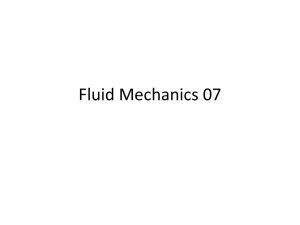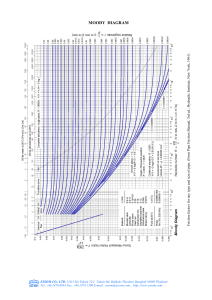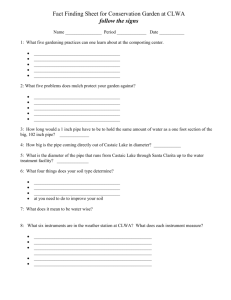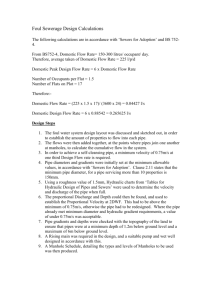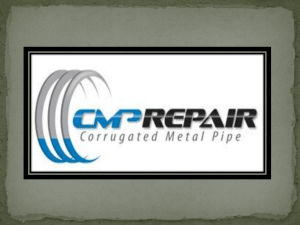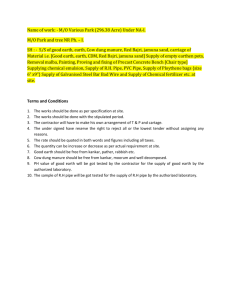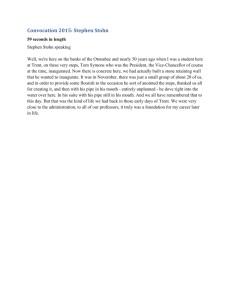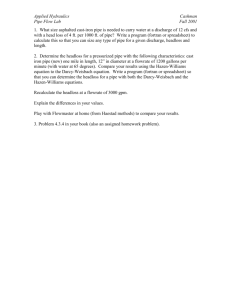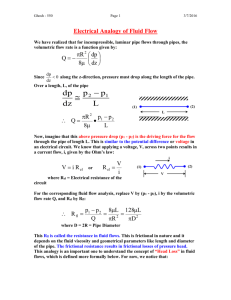Hydraulic Profile Calculations
advertisement
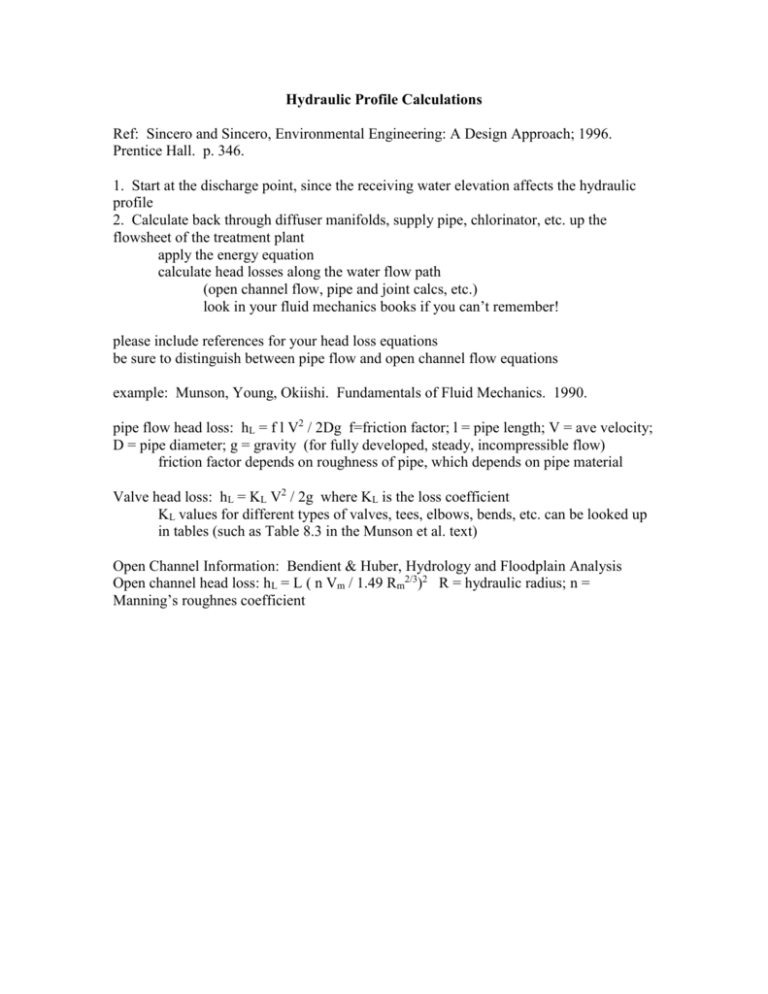
Hydraulic Profile Calculations Ref: Sincero and Sincero, Environmental Engineering: A Design Approach; 1996. Prentice Hall. p. 346. 1. Start at the discharge point, since the receiving water elevation affects the hydraulic profile 2. Calculate back through diffuser manifolds, supply pipe, chlorinator, etc. up the flowsheet of the treatment plant apply the energy equation calculate head losses along the water flow path (open channel flow, pipe and joint calcs, etc.) look in your fluid mechanics books if you can’t remember! please include references for your head loss equations be sure to distinguish between pipe flow and open channel flow equations example: Munson, Young, Okiishi. Fundamentals of Fluid Mechanics. 1990. pipe flow head loss: hL = f l V2 / 2Dg f=friction factor; l = pipe length; V = ave velocity; D = pipe diameter; g = gravity (for fully developed, steady, incompressible flow) friction factor depends on roughness of pipe, which depends on pipe material Valve head loss: hL = KL V2 / 2g where KL is the loss coefficient KL values for different types of valves, tees, elbows, bends, etc. can be looked up in tables (such as Table 8.3 in the Munson et al. text) Open Channel Information: Bendient & Huber, Hydrology and Floodplain Analysis Open channel head loss: hL = L ( n Vm / 1.49 Rm2/3)2 R = hydraulic radius; n = Manning’s roughnes coefficient
